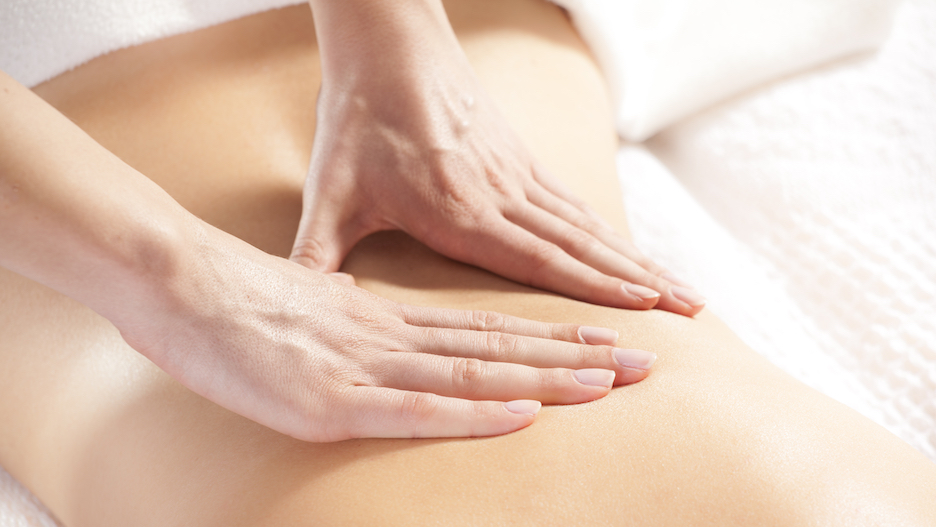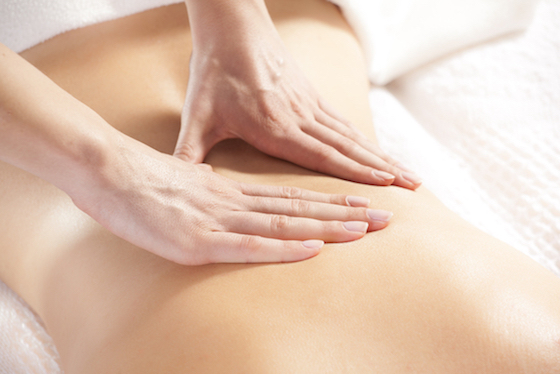By Cassie Robertson (Remedial Massage Therapist) |
Everyone has experienced it and we’d prefer it didn’t happen, but just why do muscles get sore, tight or tense?
To better understand muscle soreness, tightness and tension, let’s consider what some of the triggers are.
 Dehydration
Dehydration
“Be sure to drink plenty of water.” You probably hear this after almost every Osteopathy or remedial massage treatment, but I promise there is a good reason for it.
Water is vital for absorbing and transporting nutrients, supporting cell growth, and ridding the body of waste products. Not drinking enough water impacts the health of the entire muscle and can lead to tightness. Although it differs from person to person, Healthdirect (2019) recommends 10 cups of fluid a day for men and 8 for women.
Increased intensity or duration
Muscle tension can be triggered by workouts of a higher than normal intensity. Although high intensity is good for increasing strength and fitness, it can also leave muscles feeling tight and sore for several days. High intensity workouts force muscles to work beyond what they are used to, putting greater anaerobic and nutritional strain on the cells. The exact mechanisms that cause this delayed pain and tightness are not clear, and considering they aren’t a huge priority for researchers at the moment, will probably remain a mystery for some time.
Sustained activity or muscle overuse can also cause muscle tightness. This is exacerbated by poor biomechanics, where one muscle compensates for a generally weaker one. The stronger muscle ends up doing the work of both muscles. Although it may be stronger, over time this can impact the health of the muscle.
Trauma or injury
Muscle tightness can cause discomfort and restrict movement. A 2012 study found that participants who reported muscular tension in the neck or shoulders were more likely to experience neck or shoulder injuries. Some injuries occur because we have tight muscles and sometimes we get tight muscles because we are injured. Although this seems like a very painful chicken and the egg situation, it is often related to the natural protective mechanisms of the body. Examples of this include whiplash from a car accident or disc bulges. When the body detects a potential threat to the integrity of the spine it will often tighten the local muscles, limiting movement and preventing further injury. This is referred to as muscle guarding.
Unfortunately, the body’s diagnostic tools aren’t as accurate as an MRI or an x-ray and it can sometimes overreact. In these cases, the tight muscles can end up causing more pain and discomfort than the original injury.
Stress
Clients often tell me they carry their stress in their shoulders. Muscle tension is a very common and reflex-like response to stress. In many ways this is similar to the muscle guarding that protects from injury.
When stressed, your body naturally prepares itself to defend or flee as quickly as possible. Unfortunately, our reflexes and instincts haven’t learnt that the threats posed by taxes and deadlines are very different to those posed by predators. This can cause the body to keep muscles awake and ready for action. Over an extended time, this results in muscle tightness and soreness, which in turn can add to the stress in a vicious cycle. Thankfully the opposite is also true – relaxation and stress relieving activities can reduce muscle tension.
If you’d like to speak with Cassie Robertson or any of our other practitioners about muscle tightness or any other concern, then please feel free to contact us by phone or email.
- (03) 9939 1289
- info@melbourneosteopathycentre.com.au
References
- Healthdirect (2019) Drinking water and your health.
- Huysmans, M. A., Blatter, B. M., & van der Beek, A. J. (2012). Perceived muscular tension predicts future neck–shoulder and arm–wrist–hand symptoms. Occupational and Environmental Medicine, 69(4), 261-267. doi:10.1136/oemed-2011-100279


 Dehydration
Dehydration